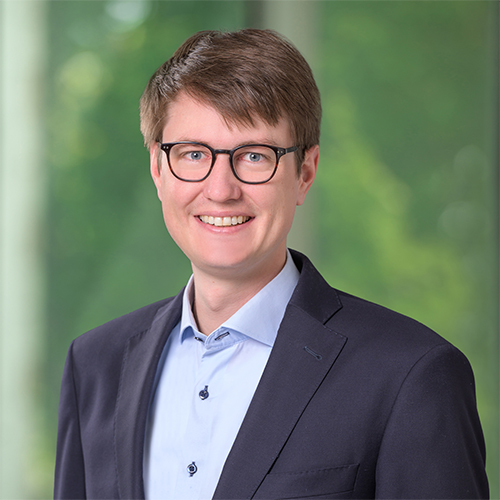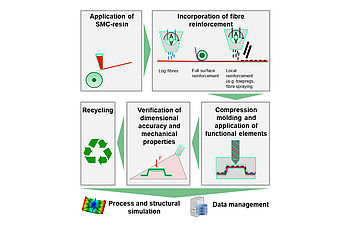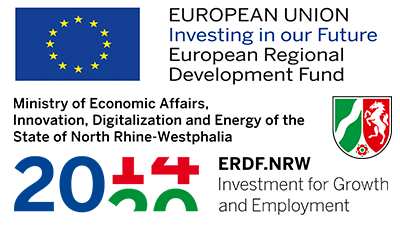EFRE Project: Hybrid SMC
Hybrid SMC - functionally integrated lightweight composite components
Key technologies for future mobility are the development and use of new lightweight construction materials. This is not only a matter of substituting conventional metallic solutions; existing plastic solutions can also be improved by optimised materials or by integrating load-optimised fibre reinforcements. This results in structurally highly resilient solutions which, thanks to the overall lower use of materials, minimise the total weight while at the same time allowing for a high degree of design freedom. It is precisely on this topic that the IKV is developing a holistic design methodology together with its project partners as part of the HybridSMC project. The aim is to use innovative hybrid materials for the cost-efficient series production of functionally integrated lightweight composite components based on Sheet Moulding Compounds (SMC) and thermoset injection moulding compounds.
Research target
The investigations focus on both the processing of new SMC formulations with high-performance thermosets and the combination of these with continuous fibre-reinforced textile semi-finished products, i.e. woven of non-woven fabrics. Local reinforcement of the SMC component with towpregs and fibre sprayed preforms are also evaluated. Subsequent injection moulding of thermoset moulding compounds (free-flowing thermosets, BMC) increases the freedom of design and allows the process-integrated attachment of further functional elements. Additionally, the research project also includes aspects of process-integrated quality assurance methods, with which reject rates are to be reduced. Methods for process simulation and the creation of databases should reduce the development costs for the implementation of new processes in the future and thus contribute significantly to a faster industrialisation of the new process chain. The IKV is mainly responsible for the systematic derivation of material and process requirements, the development and investigation of processing concepts, the development of a simulation methodology and the investigation of recycling strategies. The project is funded by the European Regional Development Fund (ERDF). Our thanks go to all institutions.

This project is promoted by
Do you have any questions on this project?



